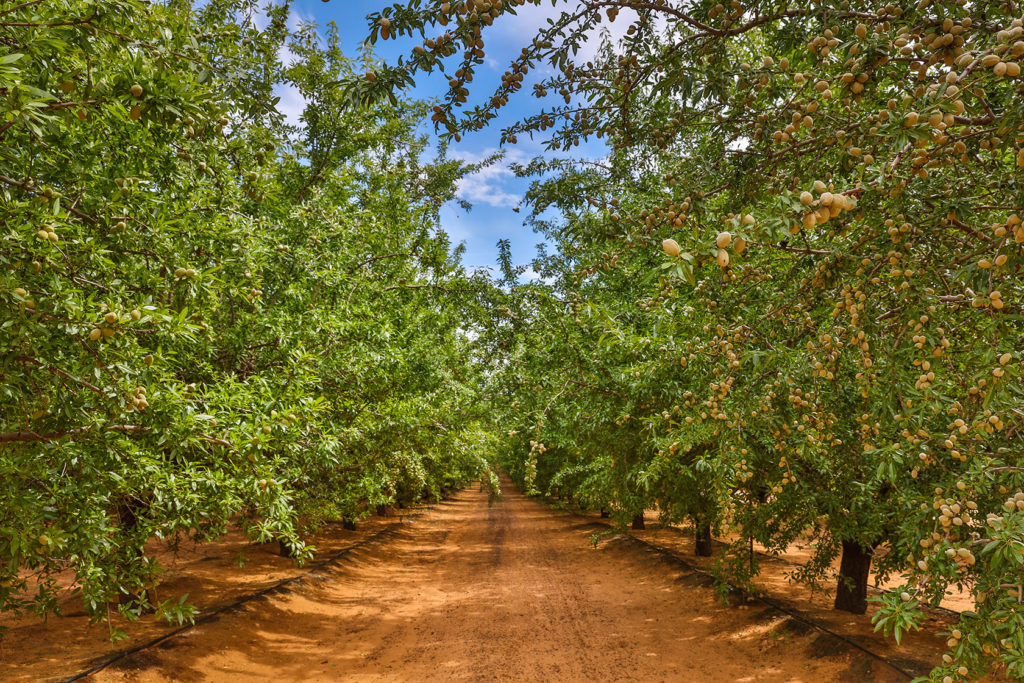The Alternative Dairy Co is revamping its Barista Almond Milk while highlighting the sustainability and quality that come with Australian made ingredients.
Almost a millennium before millennials walked the Earth, almond milk became popular in the 1100s as a non-animal food substitute during Lent. In the Middle Ages, many turned to it as a healthy and longer-lasting alternative to dairy.
While times have changed, The Alternative Dairy Co Café Trade Marketing Manager Marcus Fehlberg says the recent uptake of almond and other plant-based milks is for the same reasons.
“There’s two reasons plant-based milks are becoming more prevalent again. There’s the health and lifestyle benefits, and the other is that they’re better for the environment,” Marcus says.
The Alternative Dairy Co first introduced its soy and almond barista milks to the coffee industry in 2018, with its flagship Barista Oat Milk following in 2019. Marcus says the success of the oat milk has increased recognition of the brand and its other milks.
“It was timed well with the emergence of oat milk as an option in cafés towards the end of last year, and has had overwhelmingly positive feedback,” he says.

“Our almond milk has been around a bit longer, and with all of our products, we’re constantly listening to feedback from the market and consumers, and want to make them the best they can be.”
With increased attention and experience in coffee behind it, The Alternative Dairy Co has reformulated its Barista Almond Milk to improve its mouthfeel, creaminess, and the way it textures.
While the original recipe performed well, Marcus says The Alternative Dairy Co is always pushing the boundaries of how its plant-based milks work with coffee.
“We’re never resting on our laurels. We want our milks to be the go-to for the wider market. That means making sure they have a product that performs as expected every single time the barista pours it into a jug,” he says.
“It’s not really a substantial change in ingredients. We’ve just played with the ratios and adjusted levels to make a more robust almond milk and improve it when used with coffee.”
This means that The Alternative Dairy Co Barista Almond Milk still uses Australian-grown almonds, sourced from the Murray-Darling-based company Select Harvests. In fact, sourcing Australian ingredients is a priority for the brand, with its milks conceived and created on the NSW Central Coast.
“We want to support local farmers and the economy as much as we can. Being Australian made and owned is important, even more so with the COVID-19 pandemic,” he says.
“Australia’s also a long way from everywhere else, so it just makes sense to source locally wherever we can. We want to minimise our impact on the environment, which includes reducing carbon miles and not importing things from overseas when there are as good – if not better – ingredients available here in Australia.”
The sustainability of almond production has recently come into question, with large volumes of water required to water trees that only flower once a year. However, Marcus points out that this pales in comparison to the water used in dairy production.
“There is probably a misconception that almonds are very water intensive, but it is far less than dairy milk,” he says. “We’re not against dairy, but we offer an alternative and we think it’s a better choice.”

Marcus points to Select Harvest’s water management and irrigation strategies, and its innovative use of almond by-products to power its processing facility as just some of the proof points of the Australian almond sustainability story.
“Select Harvests has a 50,000-litre worm farm that converts almond waste into liquid fertiliser for its trees – it’s amazing. We’ve also been really impressed by their biomass co-generation plant. It converts almond hulls, shells and orchard waste into energy that powers their processing facility and even some of the nearby orchard pumps,” Marcus says.
“They‘re a great supplier to partner with, and a real Australian agriculture success story.”
The revamped Barista Almond Milk reached cafés in July, but Marcus says The Alternative Dairy Co is not going to slow down with new ideas and seeing how it can improve the use of plant-based milks in coffee.
“Plant-based milks are still fairly young in the coffee industry and we believe there’s still room for growth, and that we can make them work better,” Marcus says.
“We’ve already heard feedback from people about our oat milk being better than dairy milk in coffee. If dairy milk is the bar and oat milk has already reached that, then what’s the next bar? Where do we go from here?”
This question is driving The Alternative Dairy Co to innovate its recipes and products.
“We have this concept of a ‘unicorn milk’, the perfect expression of a plant-based milk when paired with coffee,” Marcus says. “That could be a blend of plant-based milks, or something we’re not aware of yet, so we’re always looking at new trends, developments, and technologies that could take us there.”
For more information, visit www.altdairyco.com
This article appears in the August 2020 edition of BeanScene. Subscribe HERE.




